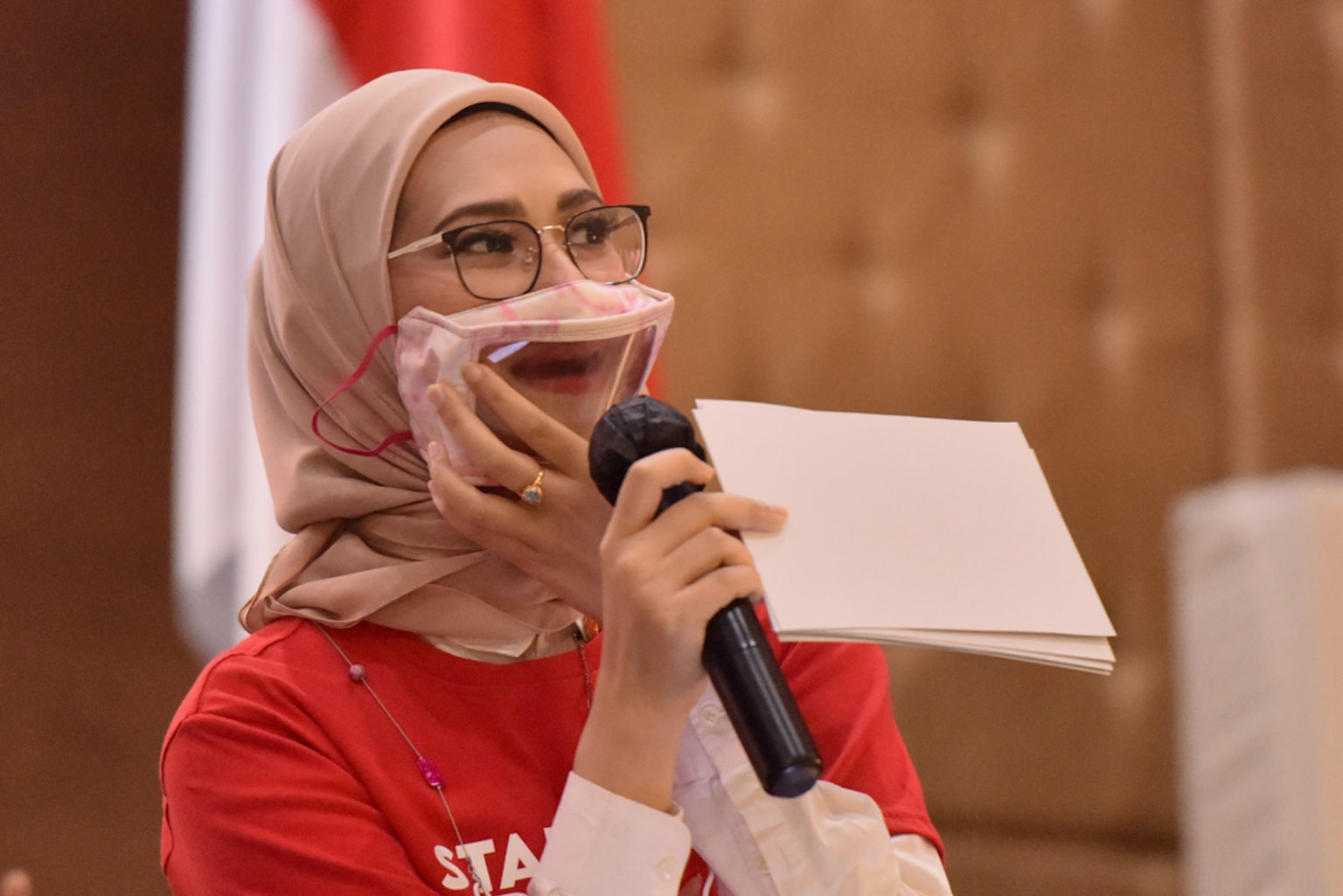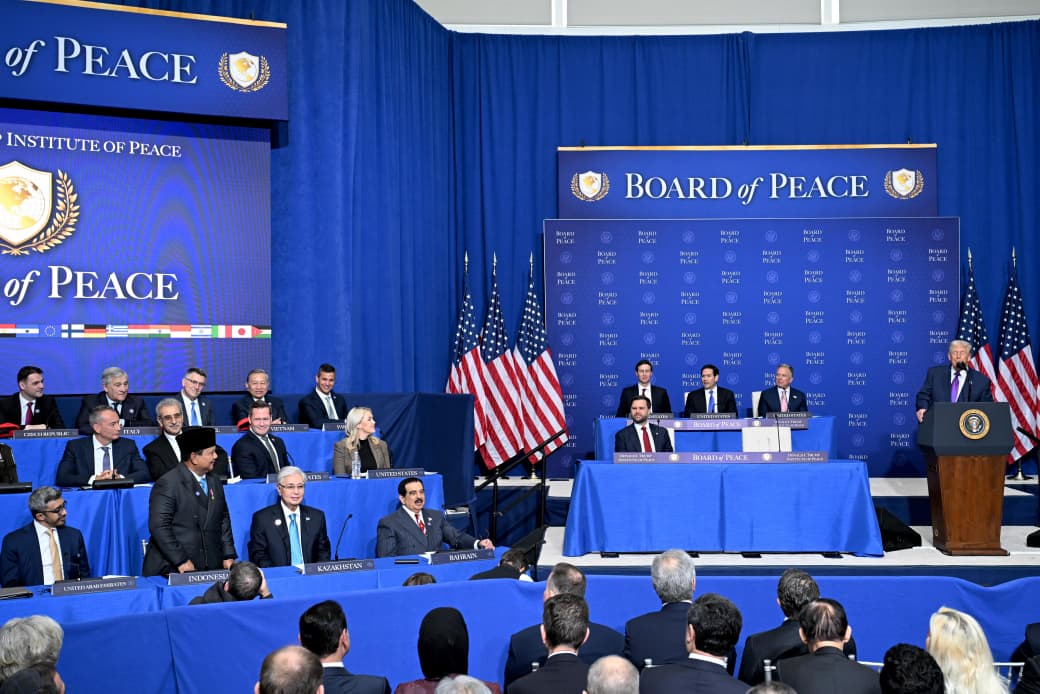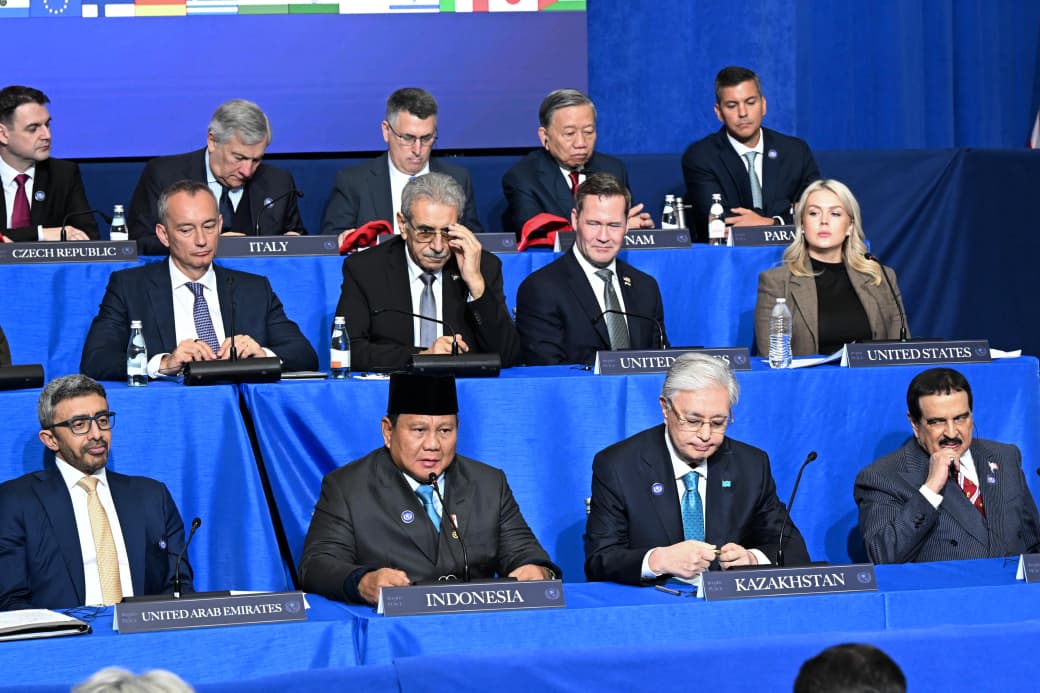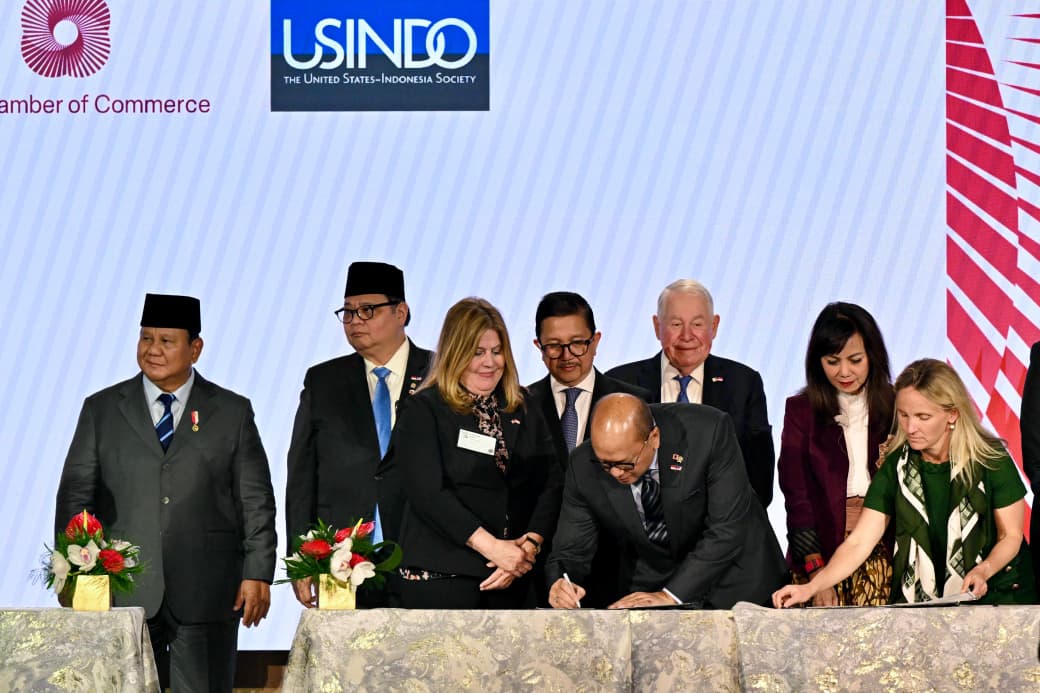Gov’t Passes Several Regulations on Persons with Disabilities to Realize Inclusive Development

Presidential Special Staff Angkie Yudistia demonstrates how to use a transparent mask during the commemoration of the 2020 International Day of Persons with Disabilities in Jakarta, Thursday (3/12). (Photo by: PR/Jay)
In a bid to support persons with disabilities, the Indonesian Government has passed various regulations derived from Law Number 8 of 2016 on Persons with Disabilities.
“From 2019 to the end of 2020, President Joko “Jokowi” Widodo has ratified six Government Regulations and two Presidential Decrees on Persons with Disabilities,” Presidential Staffer Angkie Yudistia said in Jakarta, Thursday (3/12).
The various laws and regulations, Angkie added, became the legal basis for the implementation of any future inclusive development agenda. She also expressed hope that with the passing of these regulations, implementation at the community level can function through the role and synergy of all stakeholders.
“(These include) ministries/institutions, provincial and regency/municipal apparatus, private parties, non-governmental organizations, organizations, communities that support each other so as to realize optimal disability-inclusive development towards advanced Indonesia,” Angkie said.
Furthermore, she said, in line with the shift in paradigm on persons with disabilities, a Master Plan for Persons with Disabilities has been established with seven main pillars.
The seven pillars are inclusive data collection and planning for persons with disabilities; providing an unhindered environment for persons with disabilities; protection of political rights and access as well as justice for persons with disabilities; empowerment and independence for persons with disabilities; realization of an inclusive economy for persons with disabilities; education and skills for persons with disabilities; and access and equal distribution of health services for persons with disabilities.
“The President fully realized this in the process of mainstreaming the value of inclusiveness in each ministry/institution which is responsible for aspects of respect, protection, and fulfillment of the rights for persons with disabilities,” she said.
Inclusive development, Angkie stated, is implemented to ensure all groups of society, including people with disabilities, can involve themselves in the entire development process, be it in the planning, implementation, and evaluation processes at the central and regional levels.
“Inclusive development aims to achieve a society that can accommodate differences and respect diversity,” she said.
For the record, in 2019, the Government has issued Government Regulation Number 52/2019 on the Implementation of Social Welfare for Persons with Disabilities and Government Regulation Number 70/2019 on Planning, Implementation, and Evaluation of Respect, Protection, and Fulfillment of Rights of Persons with Disabilities.
Meanwhile, in 2020, the Government has also issued Government Regulation Number 13/2020 on Adequate Accommodation for Students with Disabilities, Government Regulation Number 39/2020 on Adequate Accommodation for Persons with Disabilities in the Judicial Process, Government Regulation Number 42/2020 on Accessibility to Settlements, Public Services, and Protection from Disasters for Persons with Disabilities, and Government Regulation Number 60/2020 on Disability Service Units in the Labor Sector.
In addition, the President has signed two Presidential Regulations, namely Presidential Regulation Number 67/2020 on the Requirements and Procedures of the Awards for Respecting, Protecting, and Fulfilling the Rights of Persons with Disabilities and Presidential Regulation Number 68/2020 on the National Disabilities Commission. (TGH/UN)(FI/MMB)







